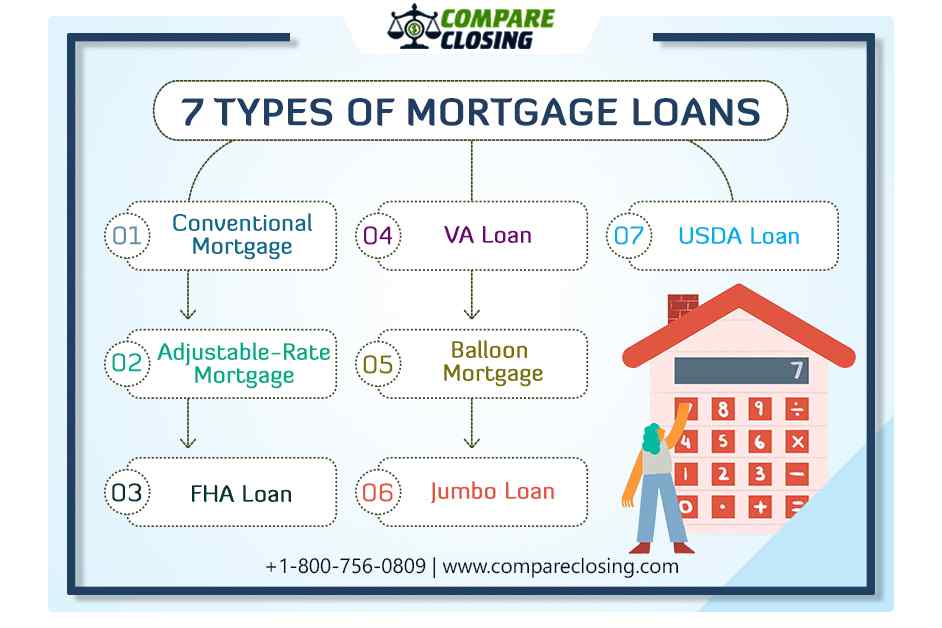Understanding the Different Types of Mortgage Readily Available for First-Time Homebuyers and Their Special Benefits
Browsing the array of home mortgage car loan choices offered to novice property buyers is important for making informed financial decisions. Each kind of loan, from standard to FHA, VA, and USDA, offers one-of-a-kind benefits customized to diverse buyer needs and circumstances.
Standard Finances
Conventional finances are a foundation of home mortgage financing for new homebuyers, giving a trustworthy option for those seeking to acquire a home. These car loans are not guaranteed or guaranteed by the federal government, which differentiates them from government-backed lendings. Commonly, traditional finances require a greater credit history and a more considerable deposit, typically varying from 3% to 20% of the purchase cost, relying on the loan provider's demands.
Among the substantial advantages of traditional financings is their flexibility. Debtors can pick from various funding terms-- most generally 15 or 30 years-- enabling them to straighten their home loan with their economic objectives. Additionally, conventional fundings might supply reduced rate of interest contrasted to FHA or VA car loans, particularly for consumers with solid credit report accounts.
Another advantage is the lack of upfront mortgage insurance coverage costs, which are usual with federal government financings. Personal home loan insurance coverage (PMI) may be required if the down payment is much less than 20%, however it can be eliminated once the borrower attains 20% equity in the home. On the whole, standard finances provide a attractive and feasible funding choice for novice property buyers seeking to browse the home mortgage landscape.
FHA Fundings
For numerous new property buyers, FHA car loans stand for an easily accessible pathway to homeownership. Guaranteed by the Federal Real Estate Management, these financings provide versatile credentials criteria, making them optimal for those with limited credit report or lower earnings levels. One of the standout attributes of FHA financings is their reduced down settlement requirement, which can be as reduced as 3.5% of the purchase rate. This substantially minimizes the monetary barrier to entry for numerous ambitious homeowners.
In addition, FHA loans enable higher debt-to-income ratios compared to traditional financings, accommodating borrowers who may have existing economic commitments. The rates of interest connected with FHA fundings are usually competitive, further enhancing affordability. Customers also gain from the capability to include certain closing costs in the finance, which can ease the upfront economic worry.
Nonetheless, it is important to note that FHA lendings require home loan insurance coverage premiums, which can enhance monthly payments. Despite this, the total advantages of FHA loans, including accessibility and lower first expenses, make them an engaging choice for novice homebuyers seeking to get in the realty market. Comprehending these financings is crucial in making notified decisions about home funding.
VA Loans
VA finances use a distinct financing remedy for eligible veterans, active-duty solution members, and certain participants of the National Guard and Books. These lendings, backed by the united state Department of Veterans Affairs, give a number of benefits that make own a home more obtainable for those who have actually you can look here served the country
One of one of the most significant advantages of VA finances is the absence of a deposit demand, allowing certified borrowers to fund 100% of their home's purchase rate. This feature is specifically beneficial for new property buyers that may battle to save for a significant down repayment. In addition, VA fundings typically include affordable rate of interest, which can result in decrease monthly repayments over the life of the loan.
One more remarkable advantage is the absence of private home loan insurance (PMI), which is usually needed on standard lendings with reduced deposits. This exclusion can lead to significant savings, making homeownership much more economical. In addition, VA lendings use adaptable credit history requirements, enabling consumers with reduced credit rating to qualify even more easily.
USDA Fundings
Exploring financing alternatives, novice property buyers may find USDA lendings to be a compelling selection, specifically for those seeking to buy building in country or country locations. The United States Department of Agriculture (USDA) supplies these financings to advertise homeownership in designated country areas, offering an excellent possibility for eligible buyers.
Among the standout functions of USDA lendings is that they call for no deposit, making it easier for new purchasers to enter the real estate market. Additionally, these loans commonly have competitive rates of interest, which can lead to reduce monthly settlements compared to traditional financing choices.
USDA lendings additionally come with adaptable debt demands, making click this site it possible for those with less-than-perfect credit report to qualify. The program's earnings limits make certain that support is directed towards reduced to moderate-income households, better supporting homeownership objectives in rural areas.
Furthermore, USDA financings are backed by the government, which lowers the danger for lending institutions and can improve the authorization process for customers (Conventional mortgage loans). Therefore, first-time property buyers taking into consideration a USDA car loan might locate it to be a accessible and beneficial alternative for attaining their homeownership dreams
Special Programs for First-Time Customers
Many novice buyers can profit from special programs created to aid them in navigating the intricacies of acquiring their initial home. These programs typically give financial rewards, education and learning, and sources customized to the one-of-a-kind requirements of newbie customers.

Moreover, the HomeReady and Home Possible programs by Fannie Mae and Freddie Mac provide to low to moderate-income buyers, supplying versatile mortgage alternatives with decreased mortgage insurance policy costs.
Educational workshops organized by different companies can likewise help new buyers recognize the home-buying process, boosting their possibilities of success. These programs not just ease financial worries but additionally empower customers with knowledge, ultimately promoting a smoother transition right into homeownership. By exploring these unique programs, newbie property buyers can uncover important resources that make the imagine possessing a home a lot more achievable.
Verdict

Traditional fundings are a foundation of mortgage financing for new buyers, supplying a reputable option for those looking to acquire a home. These financings are not guaranteed or ensured by the federal government, which distinguishes them from government-backed lendings. Additionally, standard finances may use lower passion prices compared to FHA or VA fundings, especially for customers with solid credit accounts.
Furthermore, FHA lendings permit for greater debt-to-income ratios contrasted to conventional financings, fitting borrowers that might have existing monetary obligations. In addition, VA car loans commonly come with competitive passion rates, which can lead to reduce month-to-month repayments over the life of the lending.